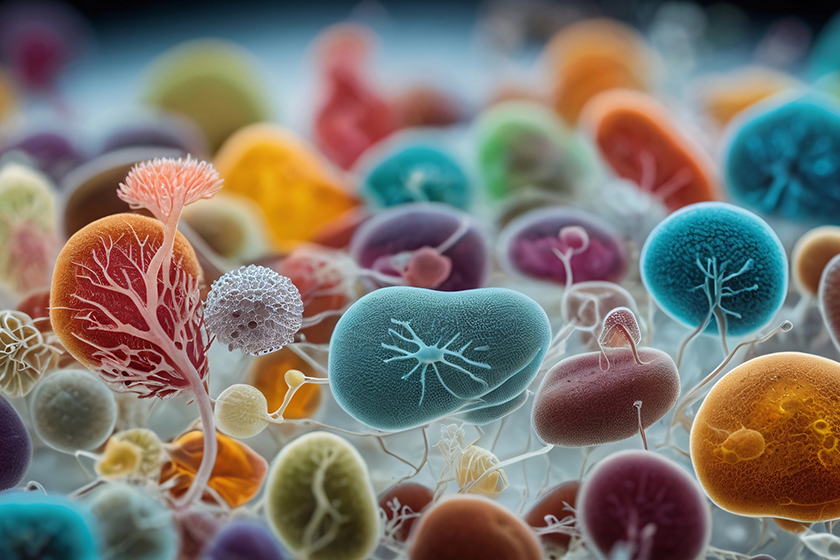The connection between the gut microbiome and healthy aging is gaining increasing attention in scientific research. As you age, maintaining a diverse and thriving community of microorganisms in your digestive tract can significantly influence your overall well-being. These microbes not only aid in digestion, since it also support vital body functions, helping you to stay active and energetic through the years.
Understanding the Gut Microbiome
The gut microbiome consists of trillions of viruses, fungi, and bacteria living in your digestive system. They play a fundamental role in breaking down food, synthesizing important vitamins like vitamin K, and managing harmful pathogens. Beyond digestion, they influence your immune system, heart health, and may even impact your risk for certain diseases.
Research shows that diversity in gut microbiota is a key factor in supporting longer and healthier lives. A study published in Nature Metabolism observed that older adults with a dynamic and evolving gut microbiome lived longer and showed better physical and metabolic health, including lower cholesterol and improved mobility.
How Diet Impacts Gut Health
The food you eat has a direct impact on the composition and activity of your gut microbiome. Diets rich in fiber from fruits, vegetables, whole grains, and legumes feed beneficial bacteria, promoting a balanced microbial community. On the other hand, consuming high amounts of processed, sugary, or fatty foods may disrupt this balance, allowing harmful bacteria to thrive.
Dark leafy greens, such as spinach and kale, are particularly effective in fostering gut health. Their rich fiber content acts as a prebiotic, which means it nourishes good bacteria and promotes their growth. Choosing these foods as part of your daily meals can enhance your gut health and overall vitality.
Physical Activity and Gut Health
Regular exercise has been shown to positively influence the gut microbiome. It may enhance the diversity of gut bacteria and promote the production of short-chain fatty acids, which are beneficial for reducing inflammation and supporting digestive health.
As highlighted by Harvard Medical School, physical activity can improve gut motility and reduce gastrointestinal disorders. Simple activities like walking, swimming, or yoga can make a noticeable difference in maintaining a robust gut microbiome and supporting your aging journey.
How Pet Ownership Benefits Gut Health
Owning a pet, particularly a dog, can contribute to gut microbiome diversity. Dogs naturally bring in a variety of microbes from their environment, exposing you to a broader range of microorganisms that can positively affect your gut.
According to research published by the National Institutes of Health, households with dogs tend to have higher microbial diversity, which is associated with improved immune function and reduced risk of inflammatory diseases. By welcoming a furry friend into your life, you may enhance not only your companionship but also your health.
The Role of Gut Health in Aging
As you or your loved ones grow older, the gut microbiome can undergo significant changes. Reduced microbial diversity and imbalances in the gut have been linked to age-related health concerns, such as weakened immune function, slower metabolism, and chronic inflammation.
Studies indicate that supporting gut health through diet, exercise, and lifestyle choices can mitigate these challenges. Maintaining a healthy gut microbiome is a practical step toward promoting longevity, mobility, and overall wellness for the elderly.
Practical Tips for Supporting Your Gut
Incorporating fermented foods, such as yogurt, kimchi, and sauerkraut, into your diet is an effective way to boost gut health. These foods are rich in probiotics, which introduce beneficial bacteria directly into your digestive system. Adding them to your meals can help enhance microbial diversity and support digestion.
You can also consider incorporating prebiotic-rich foods like garlic, onions, and bananas into your daily diet. These foods act as nourishment for the beneficial bacteria in your gut, helping them grow and maintain balance. A diet rich in prebiotics contributes to a healthier and more resilient gut microbiome.
Hydration is equally important for supporting your gut’s ability to process fiber and maintain an optimal digestive environment. Drinking water regularly helps with smooth digestion and aids the transport of nutrients through your system. Staying hydrated can complement your dietary efforts to nurture a thriving gut microbiome.
The Gut Microbiome and Your Future
By focusing on the connection between your gut microbiome and healthy aging, you are taking proactive steps to enhance your quality of life. Small, consistent changes in your diet, exercise habits, and lifestyle can profoundly influence your gut health, making aging a more vibrant and fulfilling experience.
Research and real-life observations continually reveal the pivotal role of gut health in aging well. By nurturing this unseen yet vital part of your body, you can foster a longer, healthier, and more enjoyable life. Embrace the power of your gut microbiome—it has a far-reaching impact on your future.







